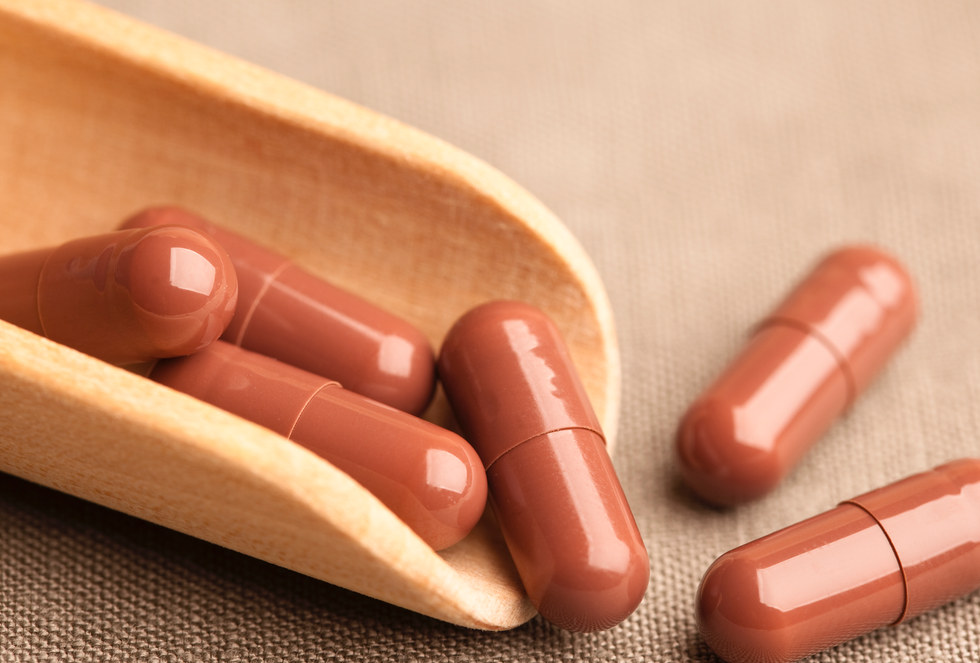Cheap 6p supplement found to boost memory and halt cognitive decline by promoting 'blood flow to the brain'

Ginkgo biloba found to improve cognitive function in people who have recently experienced ischaemic stroke
|Getty images

- Ginkgo biloba extract improved cognitive function in stroke patients
- The herbal supplement has been linked to improved thinking and memory
Don't Miss
Most Read
Ginkgo biloba extract was found to improve cognitive function in patients who recently had an acute ischaemic stroke.
Organic compounds derived from the herbal supplement were found to have anti-inflammatory and anticoagulant effects.
It comes after previous studies suggested Ginkgo biloba can improve thinking and memory.
Also known as fossil tree, maidenhair tree and Japanese silver apricot, Ginkgo biloba has its roots in traditional Chinese medicine.

Ginkgo biloba is thought to improve blood flow to the brain
|Getty Images
The supplement is derived from the tree's leaves and is taken orally. It retails at £5.75 for 90 tablets (6p each).
Previous research has looked at Ginkgo biloba's potential in treating dementia but this is the first study examine the potential of the herbal extract to improve cognitive function in acute ischemic stroke patients.
During a stroke, impaired blood flow to the brain results in oxygen deprivation and an inflammatory response which ultimately leads to neuronal cell death.
Consequently, cognitive impairment is common in stroke patients, and can significantly affect quality of life and independence.
While drugs are available to slow the progression of such impairment, they can lack efficacy and present safety issues. Safe treatments for cognitive impairment in the early years after a stroke are urgently needed.
Is Ginkgo biloba the answer?
Professor Xianghong Liu of Xi’an High Tech Hospital, China and colleagues recruited 126 stroke patients for their study.
Half the patients were treated with 25 mg of Ginkgo extract per day for 14 days, as well as receiving standard care, while the other half acted as a control group and received standard care alone. Over the next three to six months, the researchers performed a variety of tests on the patients, including measurements of inflammation and coagulation markers, and assessments of cognitive function.
Levels of inflammatory markers fell in both the Ginkgo group and control group over the first 14 days, but the reduction in inflammation was greater in the group supplementing with the herbal extract.
Levels of coagulation markers had also dropped significantly in the Ginkgo group by day 14, but not in the control group, suggesting that the herbal treatment has an anti-coagulant effect. As blood clots often contribute to the blood vessel blockages that cause stroke, anti-coagulant effects are useful in the aftermath of a stroke.
Commenting on the new research, Professor Hana Burianova said: "Ginkgo biloba has long been used to boost memory and is believed to work by increasing blood flow, as well as having neuroprotective antioxidant effects."
LATEST DEVELOPMENTS

Ginkgo biloba extract may improve cognitive function in people with dementia or Alzheimer's
| GETTYThe neuroscientist told GB News: "The latest study shows that Ginkgo biloba is also beneficial for people who have experienced a stroke, helping to boost memory and reasoning powers, and to lessen or even halt the cognitive decline that can occur after an ischaemic stroke due to a blood clot in the brain."
The latest study builds on previous research published in Stroke and Vascular Neurology, which found that combined with aspirin, Ginkgo biloba extract helped improve cognitive and neurological issues individuals were experiencing following acute ischaemic strokes.
As this study combined Ginkgo biloba with aspirin, however, further research is necessary to determine the effect Ginkgo biloba alone may have on these symptoms.
Another study found that an extract of Ginkgo biloba, known as EGb 761, was clinically effective in treating Alzheimer’s dementia.
Other research, published in JAMA, similarly that EGb 761 was safe to use and possibly effective in stabilizing and possibly improving cognitive and the social functioning patients with dementia for between 6 and 12 months.
However, other research suggests that Ginkgo may not improve memory among people who are healthy.










